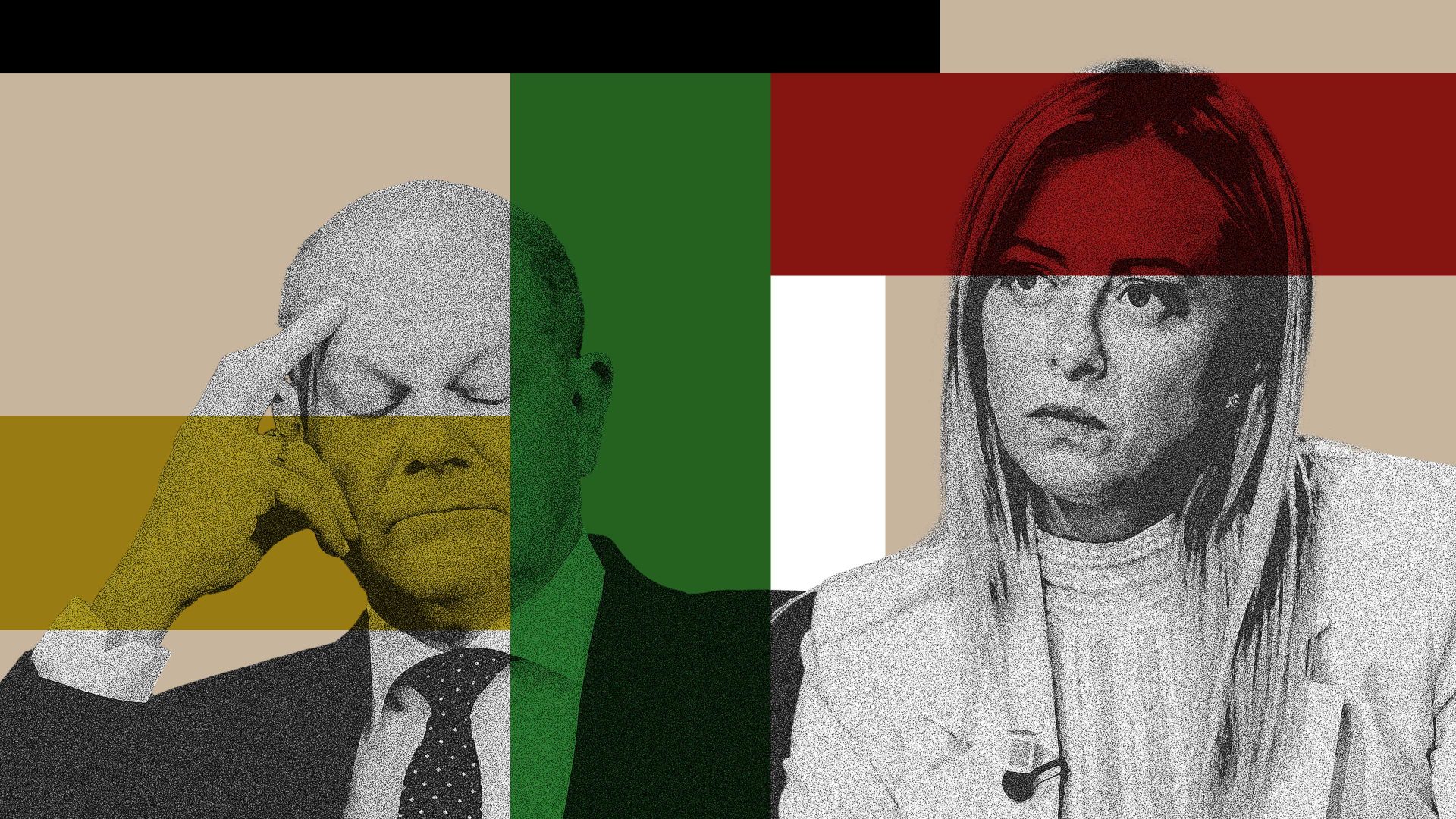There’s something special about Italo-German relations. I’m not referring to the Rome-Berlin axis, but to Goethe’s two-year-long Italian journey. He had a very productive period there, (homo-)erotically and poetically, leaving artistic crisis and Weimar stagnation behind.
Ever since this original tourist, Italy to us has been “das Land, wo die Zitronen blühen”, the land where lemons bloom. For decades Italy was our favourite holiday nation (Spain has now taken first place), and prominent among those who still go there are the former 1968 revolutionaries who have become part of the social democratic and green political elite. We call them the Toskana Fraktion (Tuscany group).
The Italian novelist Roberto Pazzi once described the “ambivalent relationship of attraction and repulsion” between us. I fully agree, and would even add a little cliche to this analysis: Germans admire Italy for its dolce vita, the romance, taste, and, despite a new government every five minutes and massive debt, a seemingly carefree life. Basically the opposite of us.
Italians in turn do truly respect our presumed diligence and discipline – it explains why the Romans, unlike Gaul, never fully colonised Germany – but they are extremely happy not to be German themselves.
Silvio Berlusconi made this clear 20 years ago, when he called then-MEP Martin Schulz a “capo”, suggesting he should take a film role as a concentration camp leader. Only days later, Berlusconi’s tourism minister, Stefano Stefani, accused “Teutonic hordes, super-nationalist blondes” of invading Italian beaches and conducting – what else? – burping contests. Stefani was only following the example of Tacitus, the first author to have acknowledged Germanic barbarity, but public outrage in Teutonia was so great that then-chancellor Gerhard Schröder (himself a Toskana-man) cancelled his holiday in Italy. Stefani had to resign. The burping continues, to this day.
In the meantime, as EU partners, our two countries have tackled the financial crisis, the euro crisis, the refugee cris… no, wait – that one we haven’t managed to solve at all. And it’s the cause for the current tensions.
The Italian government under Giorgia Meloni, labelled everything from ultra-conservative to post- or neo-fascist by the German press, is taking issue with the German government, labelled weak, quarrelling and useless by the same press. Meloni wrote to the chancellor, Olaf Scholz, that she was “astonished to learn that your government, without consulting with the Italian government, has decided to attribute substantial means to NGOs that take part in the intake of irregular migrants on Italian territory and in sea rescue.”
The decision to fund private sea-rescue missions with taxpayers’ money was a first in the EU and it was taken in November 2022, plenty of time for Meloni to complain. Some say she only pushes this agenda to deflect from her unsuccessful attempts to make Tunisia and Libya cooperate in curbing migration to Europe. But the fact remains: Italy wasn’t consulted. And so Meloni and her cabinet ministers go on record accusing Germany of aiding criminal human traffickers. They also demand that if Germany subsidises private sea-rescue ships under a German flag, Germany should also take the people collected by these ships.
I find it hard to disagree. Imagine there were a new migrant route, via the Baltic Sea, and Italy were funding private Italian ships dropping migrants in Rostock or Kiel. Doesn’t take an Einstein to guess how German public opinion would react.
The government funding – the equivalent of £6.9m over the next four years – caused controversy in Germany, too: one of the NGOs, United4Rescue, was created and is run by the partner of a prominent Green Party official – so a quarter of the total sum now runs in the green family.
But as Germany doesn’t have a 7,500km coast off the Mediterranean, we’ve basically let Italy cope (or rather: not cope) on their own for years, hiding behind EU policies that didn’t work in practice (not for us, either). Since January, 130,000 refugees and migrants have arrived via boat in Lampedusa and elsewhere – double the number in 2022.
It’s not German fishermen, either, who regularly find floating corpses and take them to shore, but Italians. All the more reason to rescue the living, yes. And even more reason to keep people from risking their lives in the first place.
But no matter how far apart Rome and Berlin are politically, they must stop taking turns in blocking EU asylum policy, as they currently do, and work together. The future of Europe depends on it.




